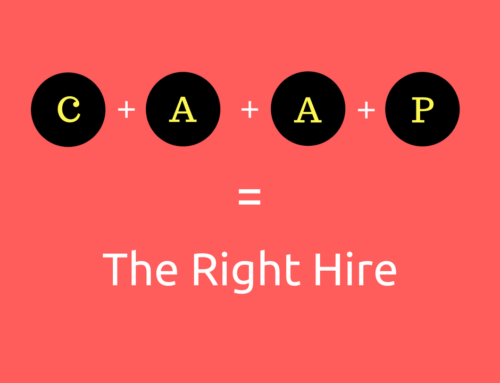You should ask more questions.
Ask employees what they want improved.
Ask what excites them.
Ask how you can help them do better.
These are all great ways to motivate employees, help improve employee retention and get employees happy about working in your organisation.
These are also great questions if you want to come across as a caring boss and enlightened manager.
I’ve been seeing articles after articles advising managers to conduct “Stay Interviews” and change the way they do employee performance appraisals by asking questions.
These are not bad approaches I must say. It is always good to approach employee performance appraisals by asking more questions and listening to what the employees themselves have to say.
Stay Interviews are also a great approach to employee retention and motivation.
In fact, in our organisations today, managers don’t ask their staff enough questions. Questions when asked in the right way and at the right time could bring about tremendous benefits to both the staff and the manager. The right questions can also spark creativity and innovation, and also help the manager keep their feel on the pulse of the organisation at large.
In our organisations today, managers don’t ask their staff enough questions
But here’s one huge downside to asking questions that most people don’t realise.
If you’re not ready to take action on the feedback, comments and suggestions you receive from your staff and employees, and you are just asking questions for the sake of asking questions, then don’t even start!
If you’re just asking questions because the consultants and coaches say so, then don’t be surprised if the entire approach backfires on you.
The fastest way to breed cynicism and demotivate your employees is to ask them for their opinions, comments and feedback just to brush them aside and do nothing.
The fastest way to destroy credibility and trust is to ask your employees for their inputs and then sit on them and/or ignore them.
The fastest way to breed cynicism and demotivate your employees is to ask them for their opinions, comments and feedback just to brush them aside and do nothing.
The fastest way to destroy credibility and trust is to ask your employees for their inputs and then sit on them.
So if you decide to take the new approach of asking your employees more questions, then be prepared to take action to address their concerns and implement their suggestions.
Otherwise if you’re not even sincere about taking action, then don’t even start.
About Steven Lock
Steven Lock is the Founder of FutureTHINK! Training & Consultancy LLP. He is a Facilitator, Trainer, Author and a Leadership Coach. Steven brings with him 20 years of corporate experience.
Steven is passionate about helping organisations transform their teams into high performing teams. He does that by first helping organisations identify and hire the right people, and then training their leaders and managers on how to manage and lead their people to achieve peak performance consistently.
Steven is the developer of The CAAP® High Performance Model. The model focuses on Culture (cultural fit), Attitude, Aptitude and Personality dimensions of their employees and job candidates. It is a highly practical, effective and proven approach.
Steven believes that for organizations to be truly successful and perform at their highest levels, they need to shift their mind-sets to having the RIGHT people on-board – and not necessarily the best or the brightest.
Steven is the author of two books:
-
• “Hiring for Performance: The CAAP® Model to Hiring and Building High-Performance Teams.”
• “The Right Talent: The Agility-Focused Interviewing Approach™ to Hiring the Right Candidate Every Time.”
He is the developer of The Leadership STYLE Report™ that is based on Dr. Daniel Goleman’s research on leadership styles.
Steven has been interviewed twice on MediaCorp’s live radio show The Breakfast Club on 938FM, and has contributed numerous articles to Singapore Business Review, ST Recruit, SHRI Human Capital, LinkedIn and other publications.
His comment on Team Collaboration has been quoted in the Harvard Business Review OnPoint Magazine.
Steven is certified in MBTI® (Step I & II) & DiSC® Personality instruments.








Leave A Comment